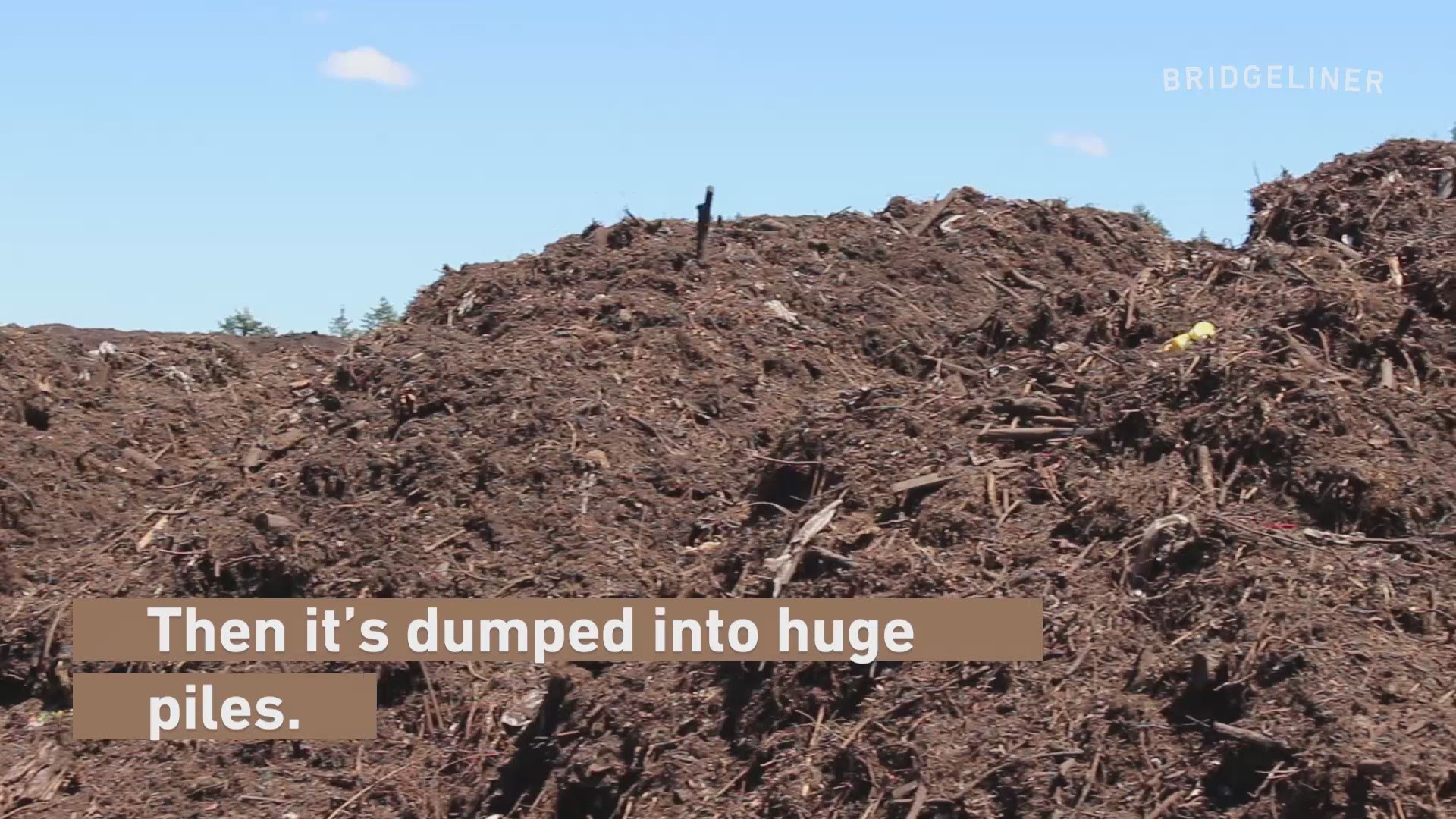KGW is partnering with the local email newsletter Bridgeliner to answer Portlanders’ burning questions about the city. (Got a question? Submit it here.)
Up first: What happens to our compost?
Where does Portland’s compost go after it’s picked up?
There are 12 different companies in Portland that collect compost from the city’s green bins (you can find out your collector here) and haul it to a giant transfer station — usually the Metro Central facility in industrial Northwest Portland.
The material is then loaded into trucks and shipped off to one of the region’s two composting centers: Recology Organics in Washington County or Republic Services near Corvallis, where it’s turned into “black gold,” a.k.a. composted soil.
Does some compost get thrown away?
No, whatever you put into your green bin will be collected and sent along the compost journey, as long as it’s actually compost. If a collection driver spots something that doesn’t belong there (like metal, glass, or clothing), they can leave an “oops tag” on the bin to notify the resident of their faux pas. (Not sure what belongs in the green bin and what doesn’t? Here are the City of Portland’s guidelines.)
Does anyone ultimately buy it? And does the city make any money from that?
The finished product is available for purchase for landscaping, gardening, and agricultural uses, but the city doesn’t play any role in that resale process, and it doesn’t get a cut of the proceeds. It simply sets the rates for residential compost, which determines how much the collection companies can charge for picking up your compost.
How is it safe to compost meat? And how does it all turn into soil?
The simple answer is heat and time. Thanks to the hard labor of microorganisms (think bacteria and fungi), compost piles get really, really hot — often over 130 degrees. That heat helps accelerate the degradation of any “bad stuff,” like pesticides, which are mostly gone by the end of the two-month process.
During that process, the compost piles get flipped and screened several times to make sure decomposition is happening evenly throughout. Staff regularly test the material’s temperature, density, moisture content, and other measurements to make sure everything is going to plan.
At the end, the material is screened one last time to refine the compost and remove any remaining big chunks. And that’s it! All the meat, bones, eggshells, and dairy (and even pizza boxes) that came from your green bin are now ready to be resold as soil for your garden.
Got a question you want us to dig into? Submit it on our PDXplained page, and subscribe to Bridgeliner for updates on what’s being investigated next.
8-8-18: Clarification from Bridgeliner staff:
"... apparently our explanation drew some chuckles from folks who work in the composting biz. Here’s how whistleblower Jeff Dean explained our mistake: “Haulers don’t pick up ‘compost’ and haul it off to be composted like the story says. They pick up ‘yard debris’ and ‘food waste’ and then haul that off to a processor to be composted and turned into compost.”

